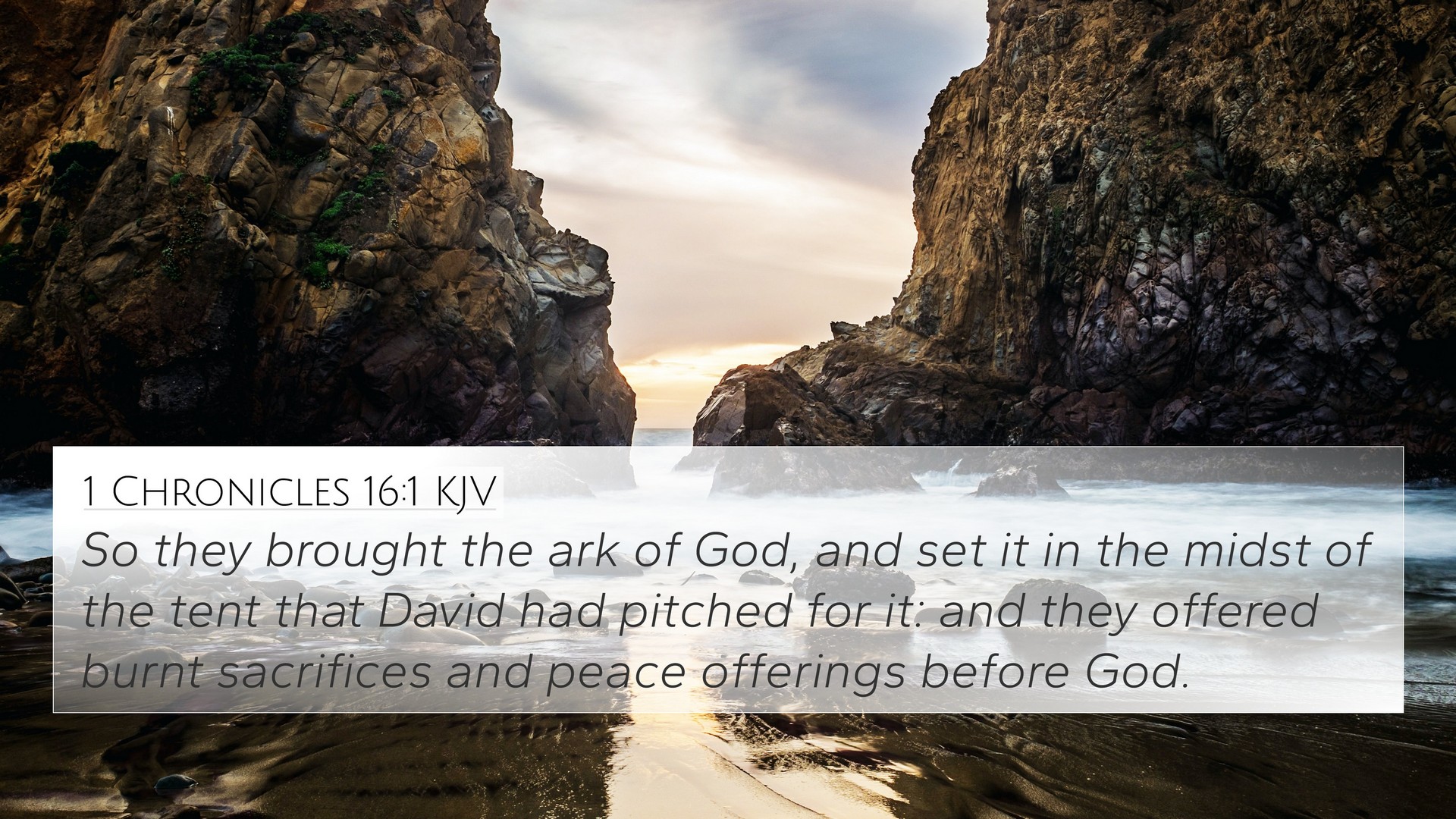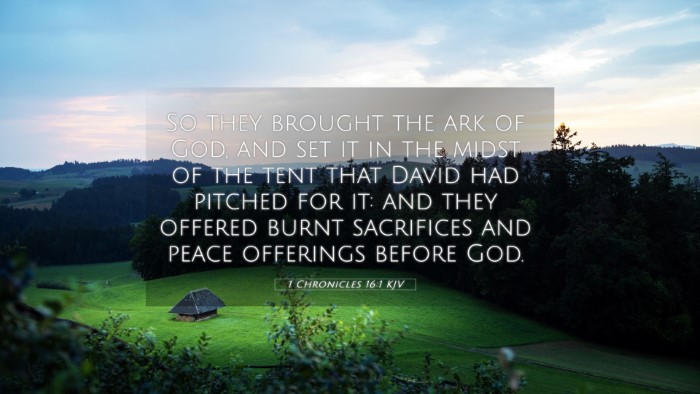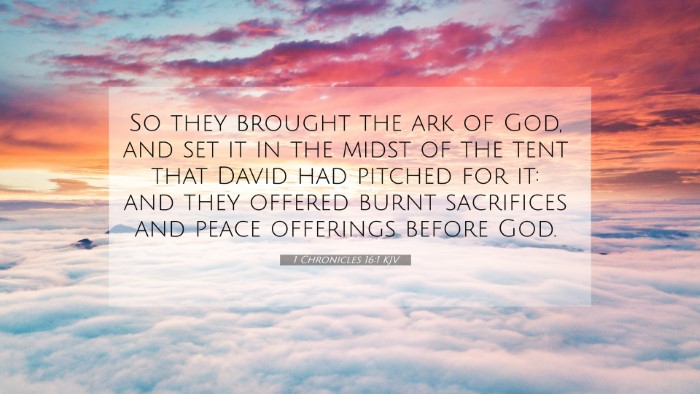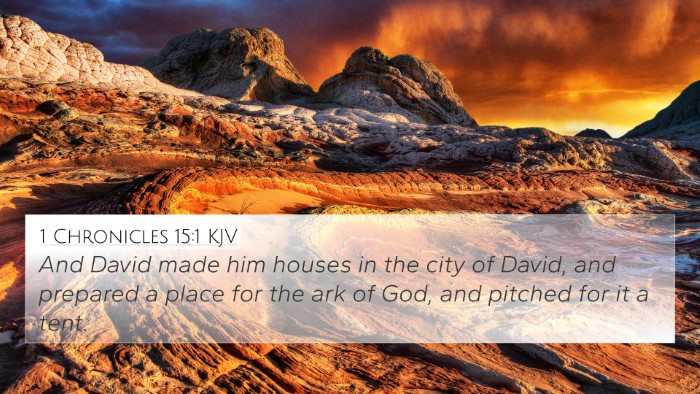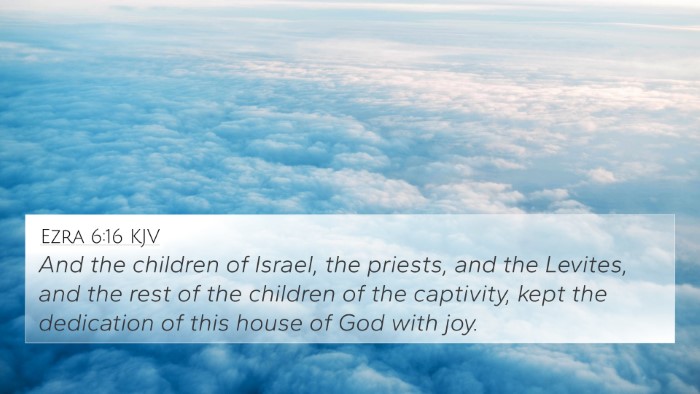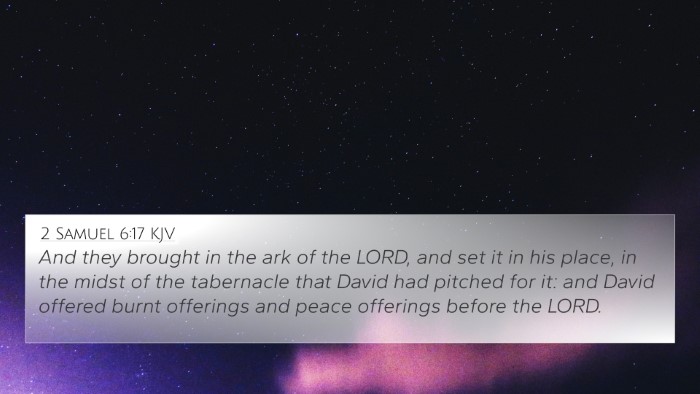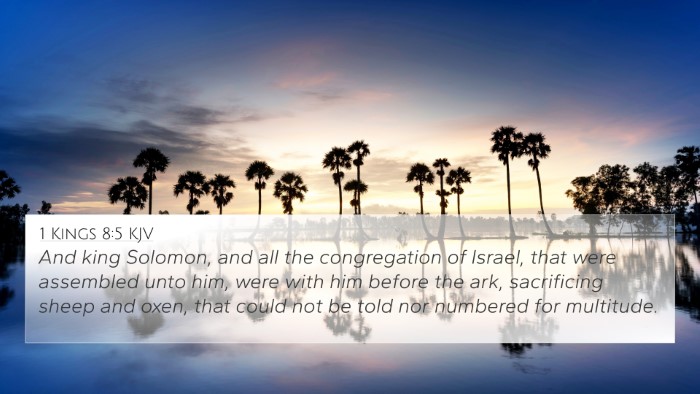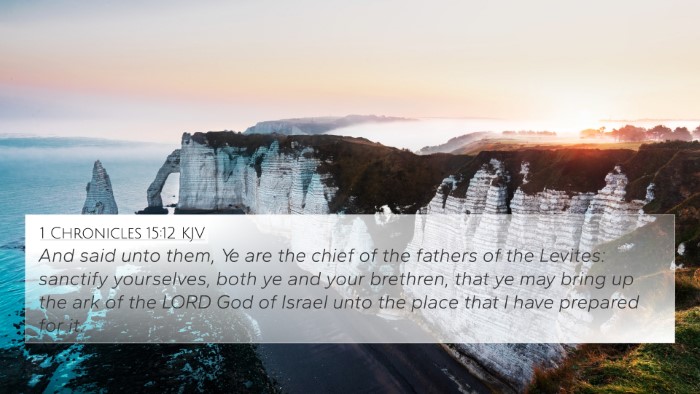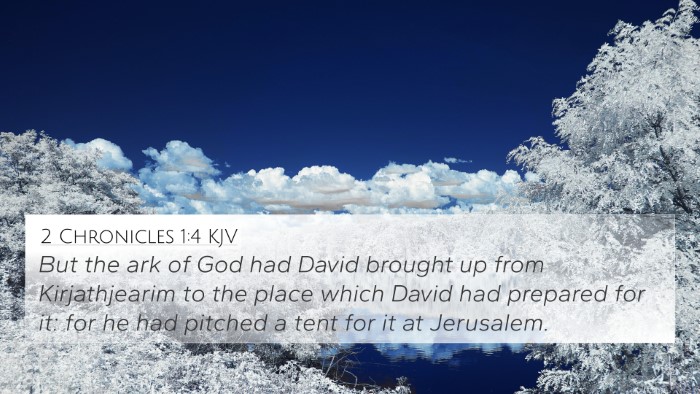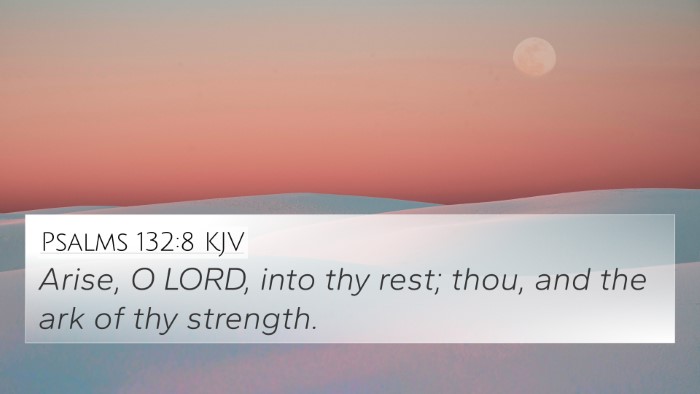Understanding 1 Chronicles 16:1
This verse marks a significant moment in biblical history, reflecting the joyous occasion of the Ark of the Covenant being brought into the city of David. It is a pivotal event that symbolizes God's presence among His people.
Verse Text
1 Chronicles 16:1 (KJV): So they brought the ark of God, and set it in the midst of the tent that David had pitched for it: and they offered burnt sacrifices and peace offerings before God.
Meaning and Interpretation
This verse encompasses several themes that are essential for understanding the broader biblical narrative.
1. God's Presence
According to Matthew Henry, the Ark of God symbolizes His presence and covenant with Israel. Setting it in the tent signifies a desire for God to dwell among His people, showcasing their commitment to worship.
2. Worship and Sacrifice
Albert Barnes emphasizes that the offerings made before the Ark are indicative of Israel's acknowledgment of God’s holiness and their need for atonement. The burnt sacrifices represent total dedication to God, while peace offerings symbolize fellowship with Him.
3. Community Celebration
Adam Clarke notes the communal aspect of this event. The setting up of the Ark in the presence of the people celebrates the unity of Israel in worship, marking a fresh start in their spiritual journey.
4. Historical Context
This action is significant historically as it marks a key moment in King David’s reign, as he sought to revive the worship and devotion of Israel. It represents a national return to worship centered on the presence of God.
Related Bible Verses
For a deeper understanding of this verse, one can compare it with the following related scripture references:
- Exodus 25:22 - Discusses God's promise to meet with Israel at the mercy seat.
- 2 Samuel 6:12-15 - Details the event of bringing the Ark to Jerusalem, showing David's joyful dance before the Lord.
- Psalm 132:8 - A plea for God to arise and dwell among His people, echoing the desire expressed in this event.
- 1 Chronicles 15:1-3 - Describes how David prepared a place for the Ark, demonstrating planning and reverence.
- Hebrews 9:4 - References the contents of the Ark, including the mercy seat, linking it to our understanding of worship and atonement.
- Matthew 1:23 - Links to the concept of God dwelling among us through Jesus, the ultimate manifestation of God's presence.
- 1 Corinthians 3:16 - Speaks of believers as the temple of the Holy Spirit, illustrating the ongoing theme of God's presence with His people.
Thematic Connections
This verse connects with various themes throughout the Bible:
- Divine Presence: From Exodus to Revelation, the theme of God dwelling with humanity is central, culminating in Christ's incarnation.
- Worship: Sacrificial worship is seen throughout the Old Testament and finds its fulfillment in the New Testament in Jesus’ sacrifice.
- Covenantal Relationship: God's covenant with Israel reflects His longing for intimate fellowship with His creation, continued in the New Covenant through Jesus.
- Community Worship: The importance of collective worship resonates in various passages, including the gatherings of the early church.
Cross-Referencing Biblical Texts
Understanding 1 Chronicles 16:1 involves recognizing its connections with other biblical texts. Tools for Bible cross-referencing can enhance study by providing insights into how different verses speak to similar themes and concepts.
Ways to Use Bible Cross-References
- Identify Themes: Use a Bible concordance to find verses that share similar themes, like worship and God's presence.
- Compare Contexts: Look at passages in their historical context to see how similar issues were addressed in different eras.
- Explore Word Meanings: Cross-referencing can reveal deeper meanings of key terms used in various scripture parts.
Conclusion
1 Chronicles 16:1 is rich with meaning and opens the door for understanding broader theological themes within the Bible. By using various cross-referencing tools and exploring related verses, one can gain a fuller picture of God's desire for communion with humanity.
